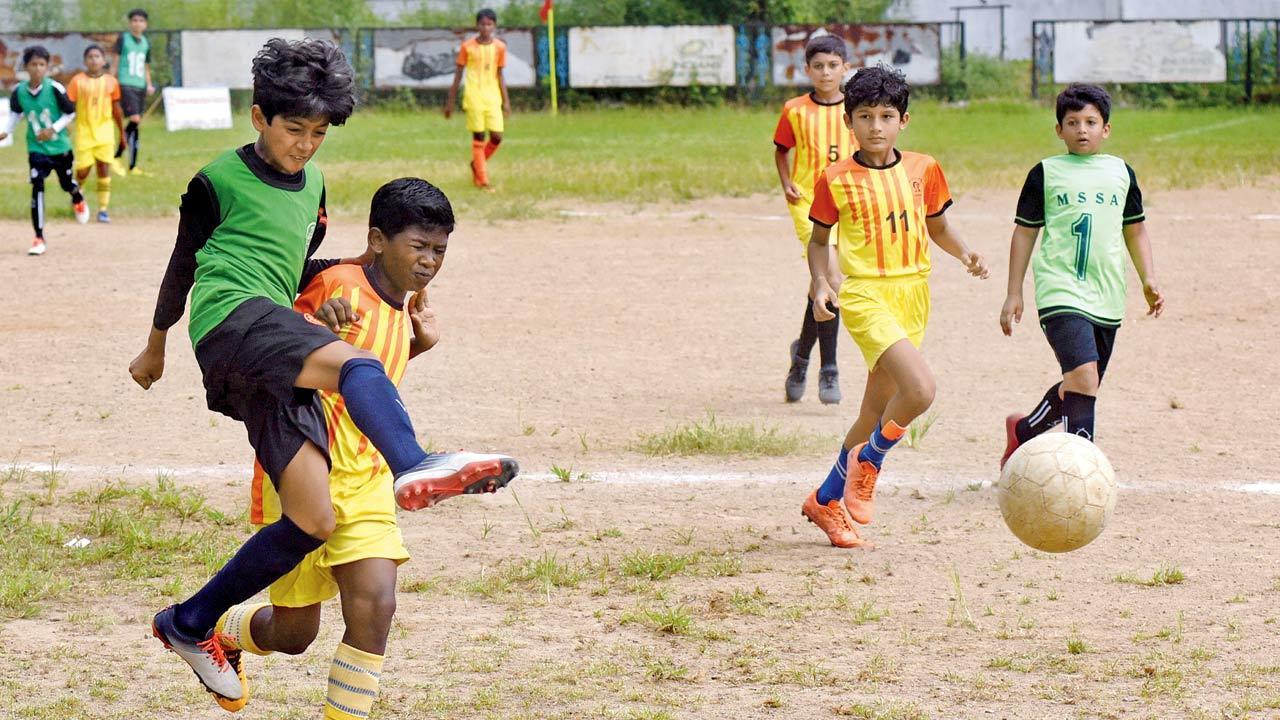RTE fallout: 218 private city schools face penalty in Mumbai

If rules under the Right to Education (RTE) Act 2009 are strictly enforced, 218 unaided private schools in Mumbai under purview of the BMC, including several prominent ones, are likely to be penalised. These schools have been operating without recognition for RTE for the past several years, having failed to get it renewed, revealed an RTI reply.
As per the Right of Children to Free and Compulsory Education (RTE) Act, schools are expected to renew their RTE approval every three years. Failing to get the renewal means schools could be fined Rs 10,000 per day until they meet the norms, and for running the school in the absence of recognition. The management of these schools will also have to pay a penalty of Rs 1 lakh.
Under RTE, schools are expected to provide free education to children from socio-economically weaker sections of society. Representation pic/Atul Kamble
In a recent reply to ward-wise information sought by the NGO Maharashtra Rajya Vidyarthi-Paalak, Shikshak Mahasangh (Maharashtra State Student-Parent Teacher Federation) through RTI in January, the Brihanmumbai Municipal Corporation (BMC) revealed that 218 private unaided primary schools across the city have failed to get their RTE recognition/ approval renewed.
Also Read: Mumbai: After 132 years, this SoBo school opens gates to girls
Some of the prominent schools include Anandilal Podar High School (Santacruz), Raje Shivaji primary school (Dadar), St Michael’s high school (Mahim), St Andrew’s high school primary section (Bandra). St Aloysius primary school (Santacruz), The Alexandra Girls High School (Fort), Gloria convent (Byculla), St Pius X high school (Nahur), Dr Sarvepalli Radhakrishnan Vidyalaya (Borivli), Rustomjee Troopers (Dahisar) and VPM’s Vidya Mandir primary school (Dahisar).
As per BMC officials, while some of the 218 schools have failed to renew their recognition for as long as 2016, some have applied after the deadline given to them.
“As these institutions were at one point recognised, I believe that before taking any action, we must take into account a number of things from a humanitarian perspective. We urge these institutions to submit their renewal requests on time. Action will be taken as per the RTE Act against those who have not renewed their RTE recognition in years, or have been breaking the rules,” said a senior official from the BMC education department.
What the RTE Act states
Under the RTE Act, 25 per cent of the total seats are reserved for the socio-economically weaker sections of society. The schools are expected to provide free education to these children and claim reimbursement from central as well as state governments.
The Act also requires all schools to adhere to 10 infrastructure standards, such as a compound wall, toilets, drinking water, playgrounds, etc. Every three years, the schools must submit an application for an extension/renewal of recognition or accreditation. Following the RTE Act’s introduction, a schools’ recognition is only renewed if it has met these 10 standards.
In addition, under the RTE Act of 2009, no school can operate without a certificate of recognition from the government authority. The BMC is the statutory body issuing the recognition certificate for primary schools.
State had warned
In January this year, the Maharashtra school education department had ordered a crackdown against 674 schools not recognised under the RTE Act.
According to the state
school education department, several schools (primary and secondary) do not register for approval under RTE, or renew their approval to evade RTE admissions.
The office of the director of education, Krishnakumar Patil, had in January 2023, issued an order stating, “Immediate action should be taken against these schools, failing which disciplinary action will be taken against the officers from the department. The unrecognised schools will have to pay R10,000 per day if they continue to operate.”
Penalise violators: activists
Education activists have alleged that schools are not renewing RTE recognition to evade implementation and hide financial irregularities.
“While getting RTE approval, it is compulsory for the school administration to submit the balance sheet to the government every year. But if they submit it to the government and the parents, a school’s financial irregularities such as illegal fees, donations, building rent, financial scandals, etc. will come to light and its administration will be in trouble,” alleged Nitin Dalvi, a Maharashtra State Student-Parent Teacher Federation representative and educational activist.
Dalvi added, “The municipal education department has caused the government a revenue loss of crores of rupees by not collecting fines from schools running without RTE recognition certificate.”
Another Maharashtra State Student-Parent Teacher Federation representative, Prasad Tulaskar said, “It is illegal to run a school without RTE approval. But the number of schools which have not renewed the RTE approval shows that no one is taking RTE seriously in Mumbai. So many schools are continuing without approval, only to evade RTE norms and hide their financial irregularities. The RTI reply proves that the BMC education department has failed to implement RTE norms properly.”
Citing why so many cases of RTE violation are coming to light across the state even after so many years since the act came into effect, the Maharashtra State Student-Parent Teacher Federation has now threatened to move the
Bombay High Court for the strict implementation of the RTE Act.
Rs 10K
Fine per day until the school meets RTE norms

Atul Tiwari is a seasoned journalist at Mumbai Times, specializing in city news, culture, and human-interest stories. With a knack for uncovering compelling narratives, Atul brings Mumbai’s vibrant spirit to life through his writing.





